Cultivating the Next Generation of Hatchery Interns
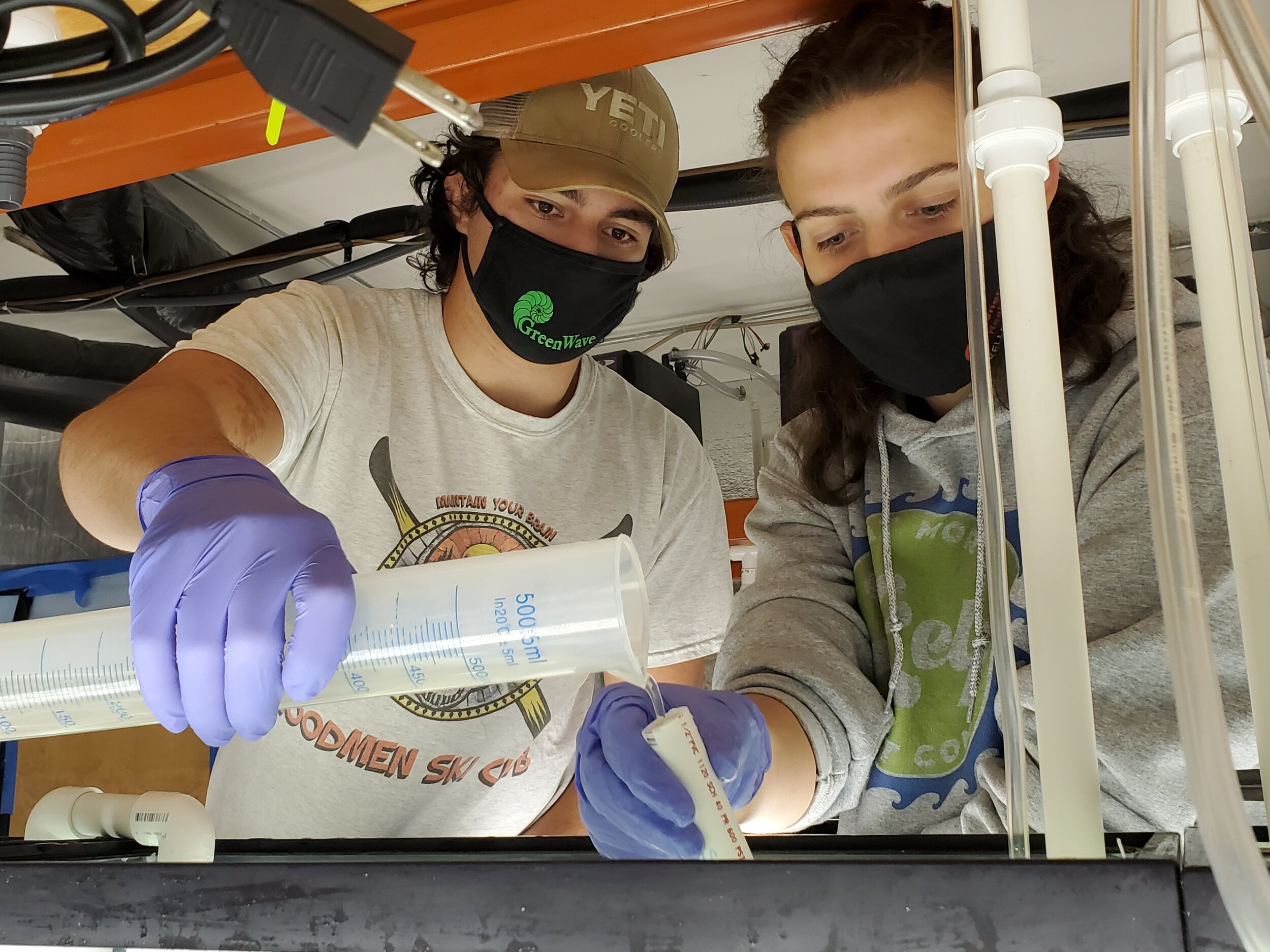
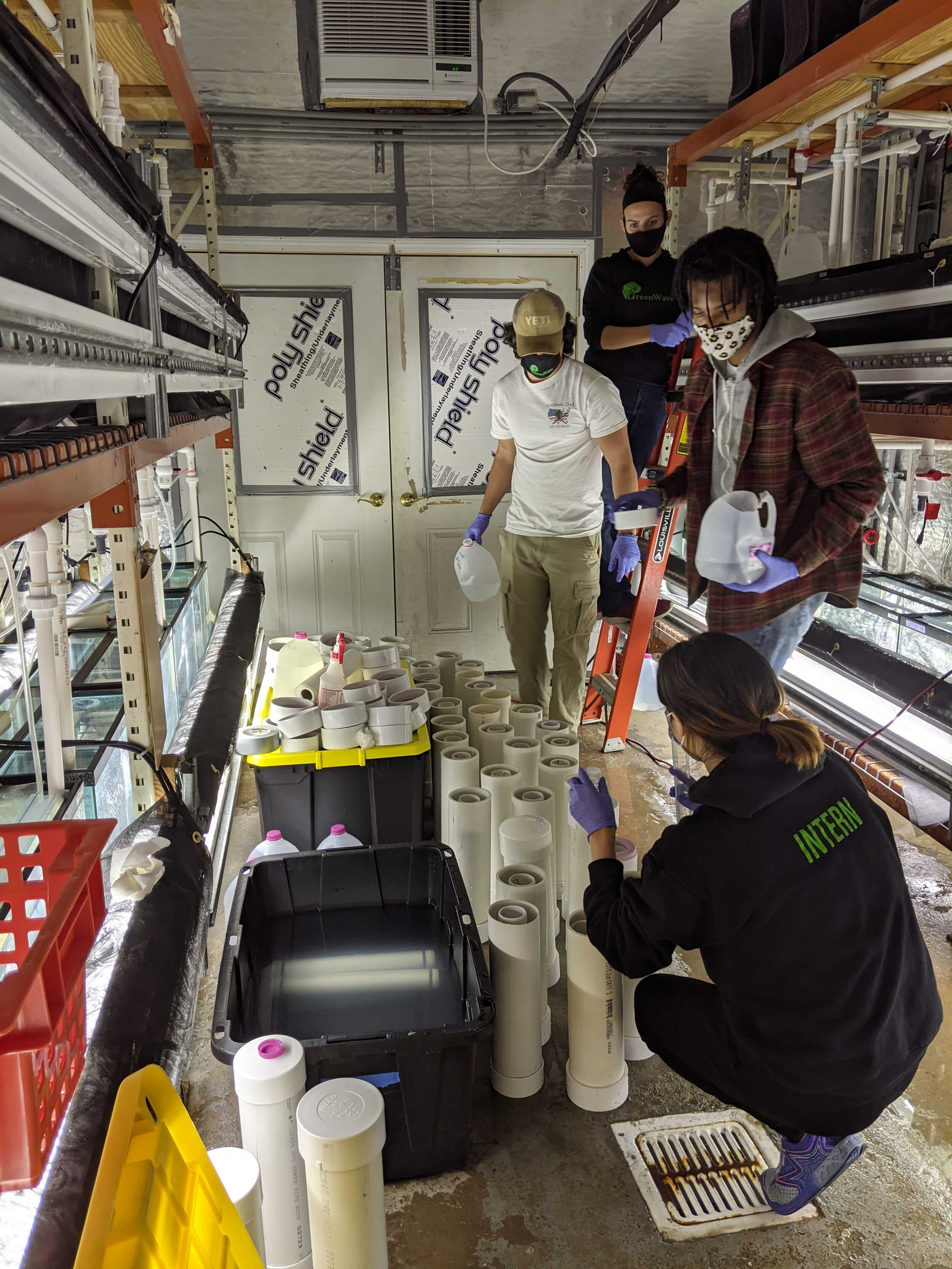
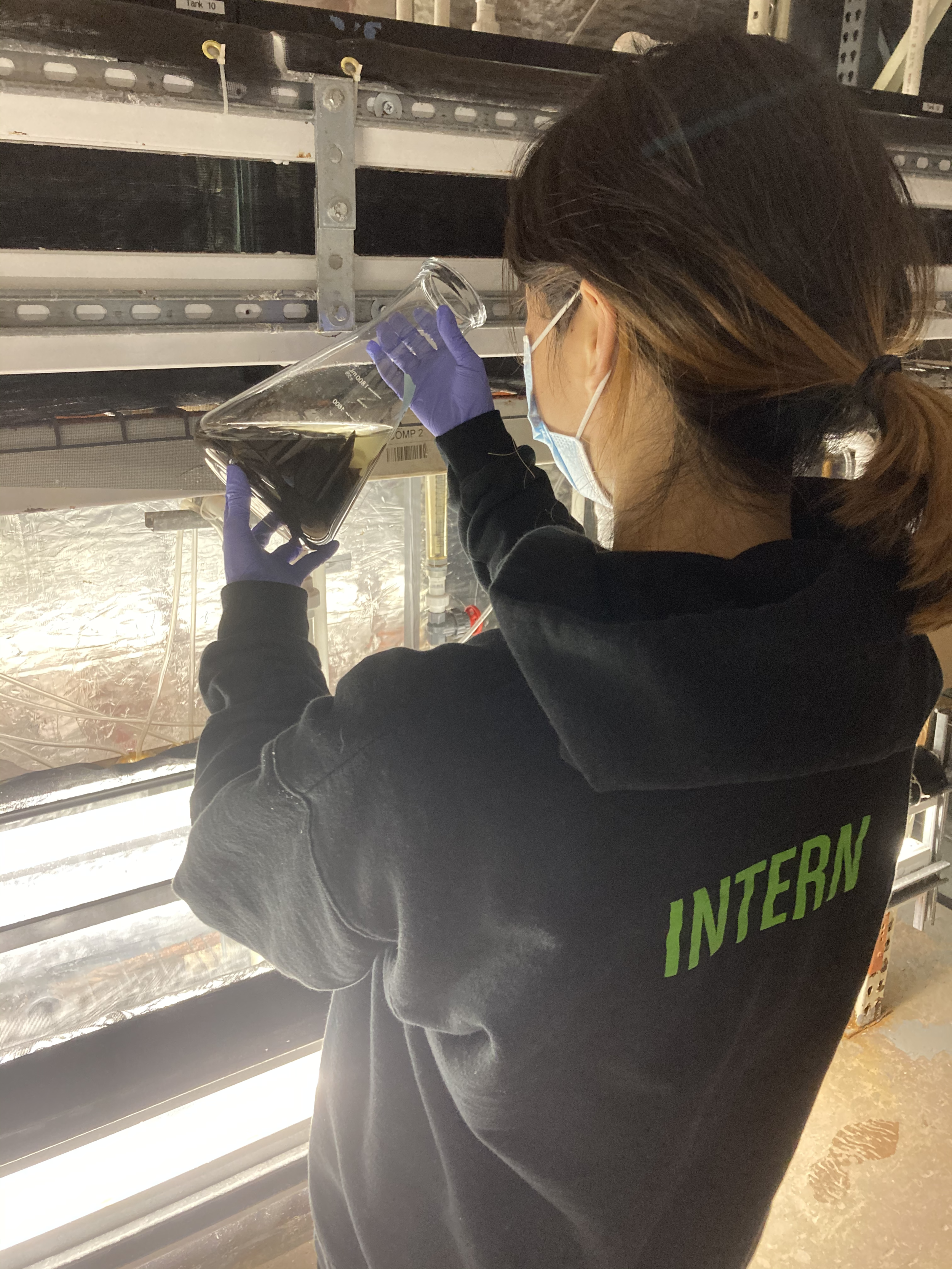
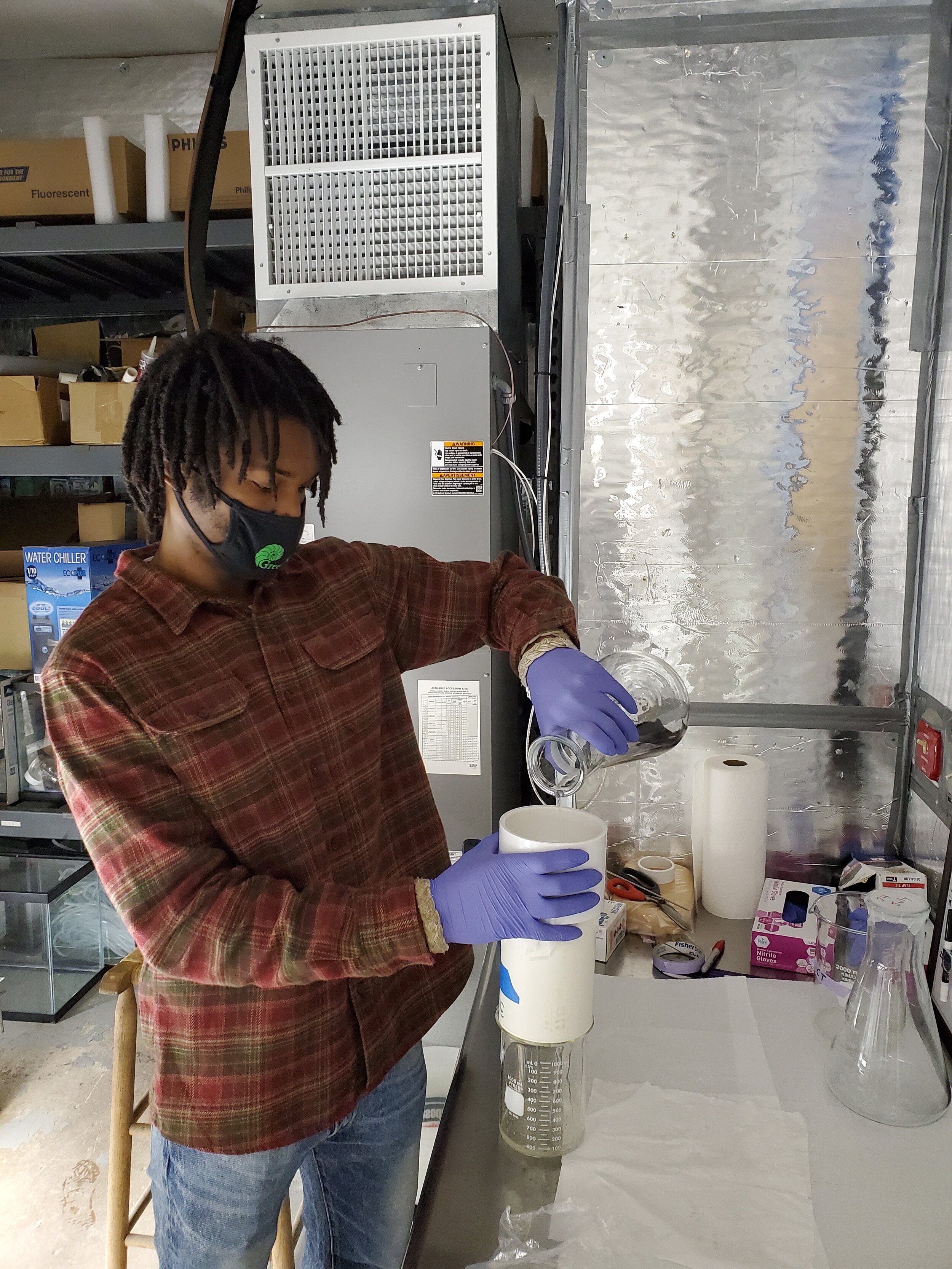
We've been inspired by the surge of youth engagement in the climate movement. In 2019, over 4 million protestors organized a Global Climate Strike days before 500 young leaders flocked to the first UN Youth Climate Summit to deliberate and advocate for immediate climate action. In 2020, a record breaking 25 million young voters cast their ballot in the U.S. presidential election, with climate change among the top five issues that drove youth to the polls. Closer to home, GreenWave's second cohort of interns, Jordan Williams, Lauren Kim, and Daniel Andrien, brought new energy, ambition, and a wide range of perspectives to our 2020 hatchery season, rising as young leaders in the regenerative ocean farming industry.
Though their experiences span public health, land-based agriculture, environmental justice, fishing, and research, Jordan, Lauren, and Dan each pinpointed GreenWave’s work as a way to get involved in building real climate solutions to protect their future and generate opportunities for communities directly impacted by climate change.
“We need to reevaluate our relationship with the environment, and change our actions to positively affect the climate,” Jordan says. With a background in public health and land-based agriculture, Jordan’s hatchery internship was an opportunity to get to know the “blue-green” part of the food system. “Through regenerative ocean farming, we can have a healthy relationship with the ocean—one where we value respect over commercial gain,” says Jordan.
Jordan’s agricultural roots are based in Southern and Jamaican traditions of gardening and fishing passed down from his grandparents. Through his work at his local community vegetable garden and the GreenWave hatchery internship, he’s focused on gaining hands-on experience and technical skills in farming on land and sea. In an effort to live sustainably in all aspects of his life, Jordan’s goal is to close the loop between land and ocean agriculture. “I want to find ways to apply what I learned during my internship and bring seaweed into my agricultural practices on land.”
Similarly, Lauren views regenerative ocean farming as a way to rethink the human relationship with the environment and rebuild the food system. “Climate change shows how interconnected we are. The impacts cross place, generations, and time,” she says. “Ocean farming is an opportunity to restructure the food system and the stakeholders benefiting from farming. There’s potential for different ways of knowing and for people normally left out of the conversation to lead the way,” Lauren says. During her internship, Lauren gained practical skills and a sense of real world accountability and connection. “The hatchery work has real stakes for the farmers relying on this kelp seed for their livelihoods.”
GreenWave piqued Dan’s interest because of the role regenerative ocean farming plays in improving water quality and habitat restoration, preserving marine ecosystems for fishermen who rely on the water to make a living. Dan has been fishing Long Island Sound since he was two years old, and in the last 19 years has noticed a steady decline of the fishery because of poor water quality. “Humans have drastically affected the natural world in such a short period of time,” he says. “We’re affecting commercial and recreational fishermen in the Sound and abroad.”
Beyond the ecosystem services seaweed and shellfish provide during cultivation, Dan also recognizes that they offer benefits even after they are harvested. “Regenerative ocean farming crops are a great material to create sustainable products for the blue economy.” Since the internship, Dan has been thinking about ways to use his skill sets in this industry. “I want to figure out creative ways to use my captain's license to support environmental work.”
The GreenWave hatchery successfully grew over 7 miles of seed string this season, making it our most productive year yet. “The interns’ diligent work ethic and dedication to kelp seed monitoring and maintenance were important factors in making the 2020 season a success,” says GreenWave Hatchery Manager Michelle Stephens. In addition to building technical skills in the hatchery, the interns study research articles relevant to regenerative ocean farming in weekly journal discussions. “The interns’ distinct backgrounds enriched weekly discussions,” says Michelle. “It was fascinating to see how their interests and experiences were interconnected through seaweed.”
Harnessing the momentum of emerging youth leadership is critical to pushing climate solutions forward, and we’re inspired by the GreenWave interns and their drive to take climate action. We’re honored to train and support young leaders like Jordan, Lauren, and Dan determined to protect the planet and their futures
